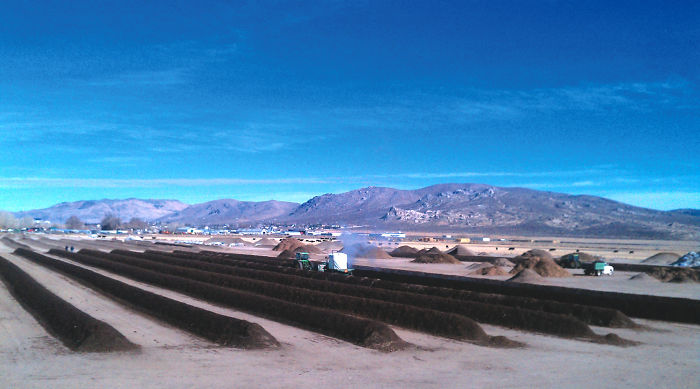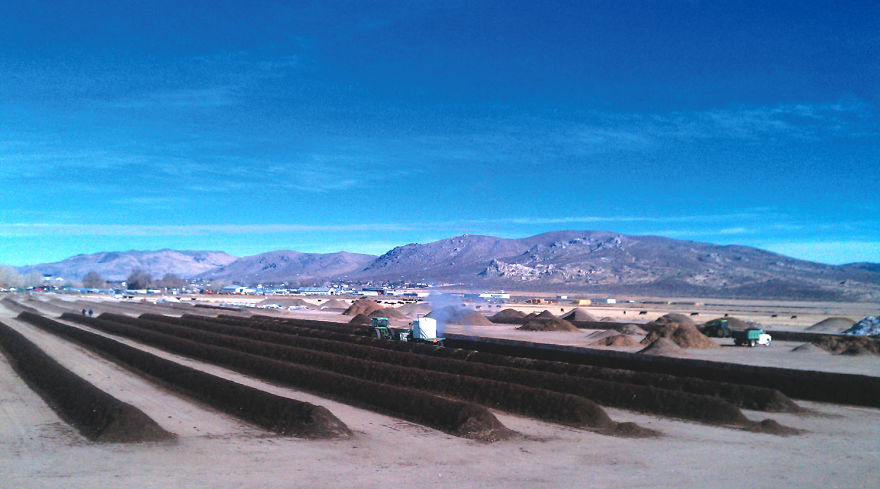Over-fertilization of soils used for agricultural and horticultural purposes is a growing environmental concern. Attention to this issue has been renewed and studied by many agricultural experts. This fact sheet is intended to address the causes and effects of over-fertilization, as well as to recommend corrective measures.
Soils are various from different areas and countries. There are several reasons why your soil might be over-fertilized. Human activity is often the cause of excessive nutrient levels, including over-fertilization, or the overuse of compost, manure or other organic materials. It has become increasingly common for soil tests processed by agricultural groups and experts from gardens and small farms to have excessive nutrient levels. It is essential that you have your soil tested before applying fertilizer or other nutrient-supplying material such as organic wastes by home-made or compost turner in order to know the current levels of essential nutrients.
Application of Fertilizer
AZEUS fertilizers provides best compound fertilizer or organic fertilizer for the amount of essential nutrients needed in order to achieve optimum growth of the target crop. And as farmers, you should apply the most suitable fertilizers for your plants according to fertilization time and soil testament result.
Application of Compost
It is a common misconception that you cannot add too much compost to your soils. In fact, excessive compost can create many problems. The most common problems are above optimum nutrient levels, high soluble salts, excessive organic matter, and soil pH levels that are either too high or too low. Soil organic matter, which provides many positive attributes to soils used for crop production, can be detrimental when used excessively. Compost is an excellent, albeit slow release, source of essential nutrients. When soil organic matter levels surpass 8%, it can lead to excessive nutrient availability and other problems.
Before applying compost or other organic amendments, it is important first to know your current soil nutrient levels, which can be obtained through a Routine Soil Analysis. Then, you need to know the percentages of Nitrogen, Phosphorus, and Potassium (N-P-K) of the amendment, as well as the pH and other pertinent attributes of the source of organic amendment to be applied. If that information is available, then application are the same as for fertilizer. When N-P-K values are unavailable or unknown, some compost test can judge more details about composted organic wastes.
It is recommended to submit a soil sample for testing a week or so following compost incorporation. This will allow for more accurate soil test results and help prevent over-fertilization.
Over-Fertilization Effects
Optimum nutrient levels listed on soil test results represent the range at which plant growth is maximized. Nutrient levels that are above optimum do not improve plant growth. In addition, excessive nutrients can cause adverse effects on plant growth, increase the potential for environmental contamination due to leaching, and represents a waste of resources.
In particular, above optimum nitrogen and phosphorus levels can lead to excessive plant and algal growth in waterways that can degrade drinking water, fisheries, and recreational areas. High potassium can lead to an imbalance of base saturation levels as well as high soluble salts. High calcium and magnesium levels are commonly associated with pH values above 7.0.
In addition, high organic matter levels can cause poor drainage. Areas where lawns or turf are being grown should have organic matter levels less than 5%. In general, organic matter levels greater than 8% in outdoor growing environments are unnecessary and can cause some of the issues listed above.
Remediation of Over-Fertilization
Unfortunately, there is not much you can do to correct over-fertilization except wait. Nutrient levels will come down over time through plant uptake and weathering.
In the meantime, take care not to apply materials that will increase nutrient levels unless test results recommend doing so. This includes compost and other organic amendments. In cases where your organic matter is greater than 8%, nitrogen recommendations may be disregarded as nitrogen is made available as organic matter breaks down. Use the condition of your plants as a guide. That is, if your plants are green and growing vigorously, a nitrogen amendment is unnecessary. If leaves are yellowed or not growing as vigorously as you would expect, then apply nitrogen at the recommended rate.
As fertilizer manufacturer and exporters, Azeus fertilizer machinery (http://fertilizer-machines.com) provides farmers and fertilizer distributors with best NPK fertilizer, urea, DAP and other fertilizer with production of 1000-1000000 mt.
More info: fertilizer-machines.com






3
0